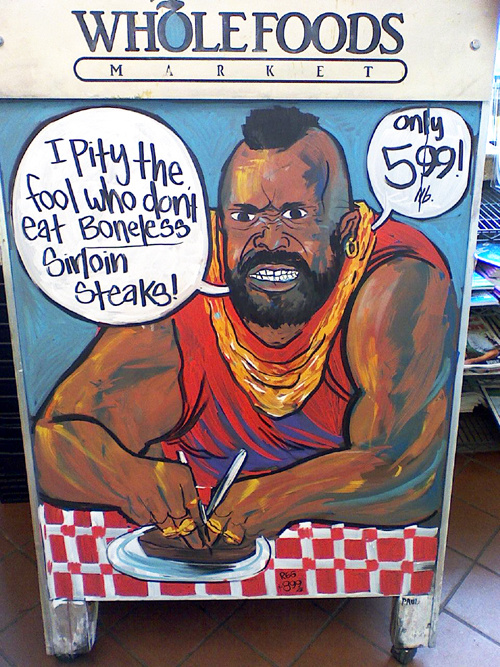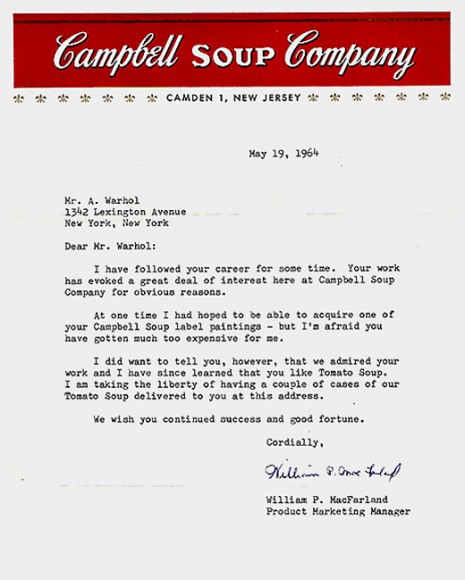25 Points: Crystal Eaters
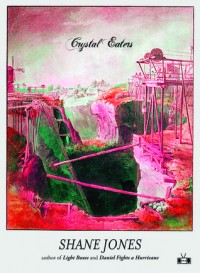 |
Crystal Eaters
by Shane Jones
Two Dollar Radio, 2014
172 pages / $16.00 buy from Two Dollar Radio or Amazon
|
0. (is) The number of fucks Shane Jones gave when he wrote Crystal Eaters.
1. Like let’s be honest. Crystal Eaters really, is Shane Jones’ giant middle finger to the publishing industry and I love it. (Like, New York City, aka: where the big book-type stuff happens). (*cough* *cough* Penguin Books *cough*).
2. I like that Crystal Eaters was released via a small indie press like Two Dollar Radio and not Penguin Books. Really. And I don’t know why.
3. That’s a lie.
4. Actually, I do know why.
5. When Shane Jones wrote that article about his shitty experience with (publishing and editing) Daniel Fights a Hurricane, I kept thinking to myself: so, for his next book, is he going to try and come up with something super-boring and ultra-generic/fake for the suits so they will sign him for another deal or is he just going to keep doing his own thing and not sell out?
6. Crystal Eaters pretty much answered my question.
7. Really, for me, the experience of reading Crystal Eaters felt a little like watching Alejandro Jodorowsky’s Holy Mountain, in the sense that it is a contemporary fable “of what social engineering caused by greed has done to the modern world, but shows us how to live and not give in to a material world.”
8. (Isn’t it weird how the IMDb synopsis for Holy Mountain just blends beautifully with/and works as a sort of faux-narrative for Crystal Eaters?)
9. The cover, I love. It’s this highly colour-fucked version of Elias Martin’s pen drawing of the Dannemora mine circa 1780-1800. (Or, at least, what I think looks like a highly colour-fucked version of Elias Martin’s pen drawing of the Dannemora mine circa 1780-1800).
10. And it’s neat to think that the art for Crystal Eaters isn’t anything custom-made (like the covers for Light Boxes and Daniel Fights a Hurricane) but something that comes from something that already existed in this world prior to Shane Jones ever even coming up with Crystal Eaters.
September 16th, 2014 / 2:30 pm
Crystal Eaters
 |
Crystal Eaters
by Shane Jones
Two Dollar Radio, 2014
172 pages / $16.00 buy from Two Dollar Radio or Amazon
Rating: 10.0
|
So my dad’s an alcoholic. (That’s really hard to admit. In fact, this is the first time I’ve typed it out, as I’m drafting.) He’s not a monster. He never beat me or did any physical harm to me. Just had outbursts and left me with daddy issues.
So the reason why I’m sharing this is because Shane Jones’s Crystal Eaters helped me come to terms with some of my childhood. If you haven’t heard the premise of the novel here’s the rub: people in this village have a crystal count. Crystals are depleted when people get hurt, age, etc. When you reach zero you’re dead. There’s a rumor that eating rare, black crystals will increase your life count, but it’s just a rumor. Black crystals do work like psychedelic drugs though. Basically, The Crystal Eaters is a novel of addiction. Everyone is addicted to something, whether it’s their self-image as a good parent, the idea of extending their life, or they’re addicted to imbibing the psychotropic black crystals, themselves.
So the son, Pants, of the main family in the novel feels guilty because his mom is dying and he can’t really do much about it because he’s in jail for tripping balls on black crystal in public. In prison, Pants realizes that he’s an addict because his parents beat him instead of not taking the time out to understand him. That means a fuckton to me because I’m an addict, too—only to porn and alcohol. What I’ve come to realize, and what Jones reinforces in his novel, is that my dad’s fucked-upness is not my fault. It’s just how his parents equipped him. “Her father had done the same to her, and so did Dad’s, and it worked, look at them, adjusted people. She didn’t necessarily believe what she thought, but her family history was stronger than her head.” As a result, the same becomes true for Pants. And even though he feels super guilty and blames himself for his mother and dad and little sister’s misfortunes, it’s not actually his fault.
“The universe is a system where children watch their parents die,” which I take to mean, the world just spins, the city grows, the sun gets hotter. Of course there’s the chance that we’ll become addicted, too: it’s a way for our bodies to heal—a coping mechanism. We just need to examine the source of our desires. Why do I need to write? Why do I need to live forever? Why do I need to drink until my brain shuts off? If we can get a grasp as to what our motivations are, maybe we can have an easier time through life. The best we can do is not to fixate on the counting down to zero—because we will all reach zero—and, if we’re lucky, touch a heart or two on the way. Read the novel. Maybe it will help you come to an important realization, too.
August 19th, 2014 / 12:00 pm
An Anonymous Email to Shane Jones
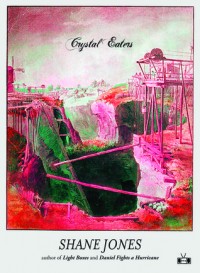 |
Crystal Eaters
by Shane Jones
Two Dollar Radio, 2014
172 pages / $16.00 buy from Amazon
|
Shane Jones,
To this day, I have still never seen these movies: Ray and Walk the Line. There are probably a few reasons why I haven’t, but one of the most important reasons concerns the fact that these movies were extremely hyped upon their release. Everyone was blowing their load. And by everyone, I guess I mean critics and my parents. So, I never saw them. I have a tendency to shy away from things that have received too much positive hype. I know myself and I can usually expect that I will be let down.
Crystal Eaters. I awaited the release of your book for months. And when it came out, I ordered it. And when it arrived at my house, I didn’t read it, at least not for a while. I wanted to pick it up and start it, but I kept seeing all of these intensely wordy and existential reviews popping up on Twitter (I’m reasonably new to Twitter). I usually don’t know what to make of intensely wordy and existential reviews, people who say that reading Crystal Eaters is like setting your brain adrift in the primordial muck of your ancestral wandering and watching it develop a higher consciousness as you stand stuck on the shore of your own punitive physicality. What?
I read it recently. I had high expectations. I’d never had a reading experience that was like tripping balls. I still haven’t. I don’t know that I want to trip balls when reading something. So, Crystal Eaters. It had one of the coolest concepts I had ever heard of, so naturally, while awaiting its release, I started to imagine what the book might be like. Months of imagining. It was like being in high school and idealizing the girl who has the locker across from you and finally having the chance to speak to her when you both find yourselves the last ones out the door from spanish club. And boom! You walk up with the perfect opening line only to hear her squeak one out because she doesn’t notice you coming and she’s never noticed you. All of this is to say that reading Crystal Eaters was nothing like a fart. It was a book that kept me up late. It frustrated me. I talked to my fiancé about it endlessly and now she is reading it because she wants to have a better idea of what I am talking about so we can discuss it further.
July 24th, 2014 / 1:07 pm
Crystal Eaters by Shane Jones
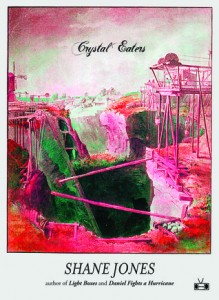 Crystal Eaters
Crystal Eaters
by Shane Jones
Two Dollar Radio, June 2014
202 pages / $16 Buy from Amazon or Two Dollar Radio
The first, most obvious observation to make about Shane Jones’ Crystal Eaters is that it begins with a countdown. Its first page is numbered 183, and it descends from there, 182, 181, 180, on and on, a timer that makes this novel feel like an unusually rigid experience, temporally speaking. After all, most books are objects that readers pick up and interact with on their own terms, at their own individual paces. Crystal Eaters’ countdown, however, makes the book feel fleeting. While in the midst of reading it, I imagined it still counting down even when sitting on my coffee table, closed—like I would eventually open it again only to find all its pages blank, its time expired.
Crystal Eaters focuses on a village that “survives on myth,” and Jones’ paginated countdown helps immerse the reader in the village’s central belief: that human beings are filled with crystals—100 at the time of birth—which crystals are then lost over the course of a life (bled out, vomited up, etc. etc.), until a person’s number reaches zero, and that person dies. The crystals are multi-colored, and Jones writes of village kids witnessing “their parents vomiting blue and yellow slush into kitchen sinks, toilets, couch cushions, their laps.” Illness in this book is surprising in its glowing, cotton-candy brightness. Almost psychedelic.
Jones’ cornerstone character—named Mom—is an example of psychedelic sickness. Shriveled by illness, Mom spews red everywhere at dinnertime. She’s down to her last few crystals, and she will die soon, a reality with which her family struggles. Her husband—named Dad—is aloof, trying to make the impending tragedy easy for everyone, but ultimately helpless against his wife’s disease. Their daughter—named Remy—believes that there must be a way to increase a person’s crystal count, thus staving off death. “The universe is a system where children watch their parents die,” perhaps, but not Remy: “She’ll save Mom from experiencing the number zero.”
A fourth character, however, expands the novel’s scope beyond the village. This character—Mom and Dad’s son, and Remy’s brother—is imprisoned, and his name is Pants McDonovan. (This may be the key question of my entire review: Do you or do you not want to own a novel that features a character named “Pants McDonovan”?) Pants used to be a revolutionary, waging a war against the unnamed metropolis that inches closer to the village each day (modernity threatening to engulf the village’s way of life). Now, Pants lingers in his cell, eating pieces of his secret stash of “black crystals.” No villager apart from Pants has ever seen a black crystal before; they exist as part of the larger system of myth that Jones suggests through his use of in-text citations, e.g., “His left eye drips crystal (Chapter 5, Death Movement, Book 8),” and, “the city has powers (Chapter 14, Resurrection, City Hospital Myth).” Remy thinks these black crystals might hold the secret to increasing Mom’s crystal count, but Pants, locked away from his family and unaware of the severity of Mom’s illness, uses the crystals in a different way: he ingests them to prompt hallucinations that help him escape the indignities of prison life.
April 14th, 2014 / 10:00 am
The Doorknob Passage – A Conversation with Bennett Sims
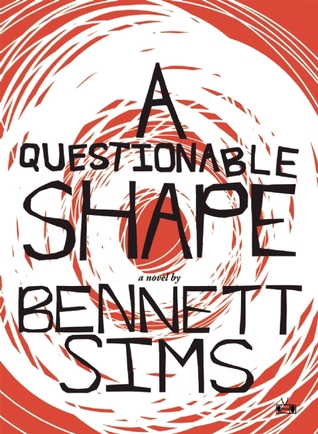
I’ve never read a zombie novel, and after reading A Questionable Shape, the debut novel from Bennett Sims, which has been described as a zombie novel, I still haven’t. We see glimpses of rabid zombies on grainy mall security cameras, ghost-like versions in a field, and zombies crowding a police car, but the book is more about retracing our memories, how to deal with loss, and ultimately, how to live in a world falling apart around us. It’s a philosophical mind-fuck of a novel filled with illuminating sentences and dark footnotes.
Bennett and I traded emails to discuss his time as a student of David Foster Wallace, paranoia, insecurities, influences, and push-ups.
Shane: So, how are you feeling?
Bennett: It’s the end of the semester, so I’m feeling somewhat hollowed out. This year I was teaching an undergrad fiction workshop here at the University of Iowa, and I wrapped up all my grading yesterday. Nabokov has that line about finishing a work, how he feels like ‘a house just emptied of its grand piano.’ It’s a little like that—except that instead of producing beautiful music, the part of me that’s missing is used to shooting off workshop letters and miscellaneous correspondence. So I guess I’m feeling like a house just emptied of its fax machine, which is a different kind of quietness. How are you feeling?
Shane: I’m depressed because I’ve been doing nothing but eating cookies and drinking coffee and now I’m crashing from it. I’ve never heard of that Nabokov line before but I like it. Pale Fire is a beast and my favorite of his. Did Nabokov influence A Questionable Shape? I see some of his wordplay and magic in your sentences.
Bennett: Sorry to hear about the cookie-and-coffee comedown. I usually have to take a nap when that happens.
Thanks for the kind words about the book. I’m flattered by the Nabokov comparison. He’s definitely a background influence—one of the stylists I’ve admired longest, whose sense of wordplay and whose sheer felicity of description I’ve tried to absorb. But I was not thinking about any particular work of his when drafting A Questionable Shape. The footnotes, for instance, were self-consciously modeled on Nicholson Baker’s The Mezzanine, rather than Pale Fire.
McDonald’s, Target, Dicks: an interview with Shane Jones
 Everything’s coming up Shane Jones. His new book, Daniel Fights a Hurricane, releases today from Penguin (check out Ellen Frances’s sweet trailer here), which means Shane is back in full swing on the internet. Awesome—it’s good to read his mind like this, enjoy his wit and ingenuity. Here is an homage to Faulkner at Tin House. At The Millions, an essay about why he writes. PLUS, Albany crowned him the best writer in all the city, so you know, he’s got that going for him, which is nice. I just got my new copy of NYLON, and they’ve reviewed the book; Jess Sauer calls it “a modern fable, and despite its apocalyptic overtones, Daniel’s delusions are more beautiful than grim.”
Everything’s coming up Shane Jones. His new book, Daniel Fights a Hurricane, releases today from Penguin (check out Ellen Frances’s sweet trailer here), which means Shane is back in full swing on the internet. Awesome—it’s good to read his mind like this, enjoy his wit and ingenuity. Here is an homage to Faulkner at Tin House. At The Millions, an essay about why he writes. PLUS, Albany crowned him the best writer in all the city, so you know, he’s got that going for him, which is nice. I just got my new copy of NYLON, and they’ve reviewed the book; Jess Sauer calls it “a modern fable, and despite its apocalyptic overtones, Daniel’s delusions are more beautiful than grim.”
The most striking feature of the novel for me is how palpable the levels of reality are. Shane juggles all these layers of occurrence and perception in an unsettling way, but what makes him so good at it is 1) how funny he is, and 2) how effectively he times the switches, brings in the actuality, gives hints about what’s what. The book is like a snowflake: no two readings will ever be alike.
How do you like being Best Writer in Albany?
The local arts paper here does that every year – a best of thing. I think local businesses really try and get like “Best Place for Dinner” because it translates into people eating at their place. But Best Writer? Meh. I don’t know if anyone really cares. I joked to a friend of mine that I was going on a “best of” tour in Albany but he didn’t think it was too funny. It’s tough being the best.
So, what’s Daniel’s problem?
That’s a good question. I don’t know. He fits into the world and he also doesn’t fit into the world. My biggest fear is that people will read his character as just “some insane guy” and won’t see any of the beauty, sadness, depth, of his character and world. Daniel’s biggest problem will probably be certain readers.
So—Daniel Fights a Hurricane—weird book, huh? I think once again you’ve created something that does things with story that people don’t expect. How do you describe it to smart people who maybe don’t read a lot?
I’ve said before how hard it is to describe my own book. Do you have this problem? You’re really handsome, so people probably just buy your book immediately. I have a fantasy where I just scream into someone’s face “JUST READ THE FUCKING BOOK!” and they’re like, “Oh wow, yeah, I’ll go and read it right now.” I guess it is a weird book? It mixes reality and imagination and overlaps them and weaves them together and stuff like that. It’s like mixing a bunch of colors of paint in one can and seeing what’s going to happen. READ MORE >
Shane Jones’s Daniel Fights A Hurricane: The Trailer
DANIEL FIGHTS A HURRICANE [Official Book Trailer] from Ellen Frances on Vimeo.
Now available for preorder.
“Last April I hurt my knee doing Brazilian Jiu Jitsu” : 6 Questions W/ Jesse Ball
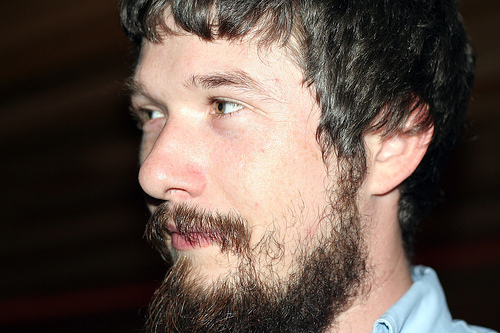
[Jesse Ball’s latest novel, The Curfew, will be released from Vintage on June 14th. Last month Shane Jones caught up with Jesse about the new book via email. – ed.]
SJ: When I first interviewed you back in 2007 we spoke a little about how fast you write your books (some in several weeks) and I’d like to go back to that discussion. Specifically, how fast your books feel to a reader (the latest feels even faster than your first two books). I literally could not stop reading THE CURFEW because it felt like I was being pulled along, my eyes kind of racing over the words. Is this something you consciously try to implore in your novels? Was THE CURFEW written in the same short-time/style as the others?
JB: Even more quickly, actually.
I feel very strongly the burden that a writer ought to tell a tale and that the writer should do it so properly and well that the reader forgets himself or herself. There are many other things I do (or try to do), but that is the first.
11 Pringle cans of furled knees
14. WTF? I thought Shane Jones killed February? (as noted) Today I learned that freezing rain is different than sleet. The hayseed fear-mongering weatherman just went simile on the ice; he said, “It’s like a candy shell.” Not bad, though a discord of tone. University dismisses the pacing, caged jaguar of classes; milk and bread sales go all Kelly Clarkson; and I wonder how many sit at home on their MePhones? Just years ago would have been a book for every downtime: waiting room while oil is changed, the vehicle registration line, the afternoon at the bar, this big-ass blizzard. Now it’s a phone. Just saying, but not me. I’m about to cuddle up with Into Thin Air and my Hobart flask.
9. To shit you or to shit you not. I shit you not. Reality rajah Mark Burnett is making literary Cliff’s Notes (yes, those little yellow pamphlets that borrow their color scheme from roadsigns) into a TV comedy series. OK.
1. Dawn Raffel at Willow Springs (with all kinds of good extra links).
94. Look here you smarmy-asses: novels in which the author appears as himself!
2. A sudden thought: What if AWP is snowed in and everyone having to sleep on the Book Fair floor curled inside their satchels, lean-tos made of idiosyncratic eyeglasses, perfect-bound tents of spine-broken books? And when the power fails, what book will we burn first for heat?
4 all-night chemists
4. Big-ass Paris Review Jonathan Lethem interview.
I was one of those creepy dropouts who moves into his girlfriend’s dorm room. She stole meals from the dining hall in a Tupperware container hidden in a hollowed-out textbook, and I sat in her room and wrote an unpublishably bad first novel.
14. Angelina Jolie’s favorite book is Vlad the Impaler: In Search of the Real Dracula. If you were wondering.
77.
2. The Australian on Light Boxes by Shane Jones.

